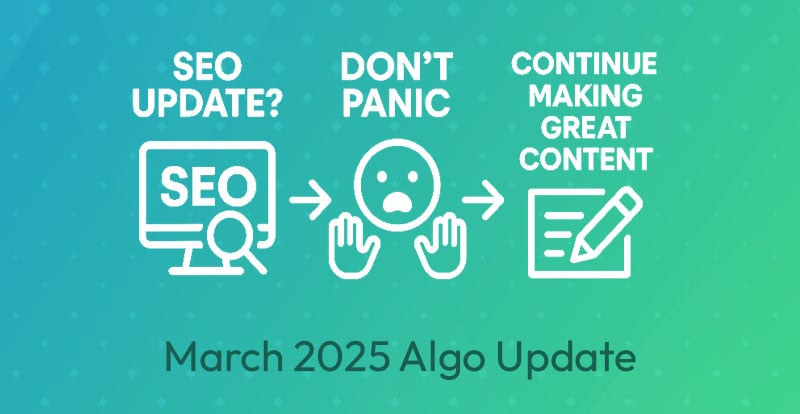Search engine optimization is a critical investment for website owners, but it’s also a goldmine for unscrupulous businesses looking to exploit your lack of knowledge. SEO can seem like a mysterious and complex field, which makes it easy for scammers to rip off unsuspecting business owners. You might get sold on flashy SEO reports and grand promises of top rankings, but often these companies are either doing nothing or using outdated methods that yield no results.
I’ve had countless clients come to me frustrated with their current SEO provider, from local mom-and-pop shops to high-profile Shark Tank clients. Once I dig into my own analysis, I frequently find the same issues: no real work being done, outdated techniques, and empty promises. The business owner is left paying for services that don’t deliver, often because they don’t understand what SEO truly involves.
It’s well-known that having your website found online is essential, but the average person doesn’t know the first thing about SEO. It’s not like buying a fridge, where everyone has a basic understanding of what to look for. This knowledge gap is exactly what these predatory SEO companies exploit. They promise first-place rankings (a guarantee no reputable SEO firm would ever make), and then proceed to charge you exorbitant fees for ineffective services.
So, how can you protect yourself from these money-grubbing companies? First, never trust an SEO provider that guarantees specific rankings. Legitimate companies will describe their methods, which should include up-to-date techniques and a clear strategy. Be wary of prices that seem too good to be true – quality SEO typically starts at around $1-2k per month. Educate yourself by getting multiple quotes and watching educational videos on SEO basics. For added protection, consider hiring an independent contractor from Upwork to review your SEO company's plan.
I’ll walk you through the red flags and devious tactics these companies use to rip you off, and provide you with the knowledge to avoid falling into their traps. Let’s dive into how SEO companies are scamming business owners and how you can avoid becoming their next victim.
We make some damn good websites.
Hit Us UpOverpriced SEO Services
Example: A roofing company is working with a local SEO company that charges roughly $5,000 a month for minimal effort and minimal content.
Red Flags:
- No Reports: Your SEO company should provide detailed reports of what was done and the progress each month. A simple list does not cut it.
- High Traffic, Low CTR: If your Google Analytics shows high traffic numbers but a low click-through rate (CTR), this is a red flag. It means people are visiting your site but not engaging with your content.
- Irrelevant Content: Some SEO companies may index pages that have nothing to do with your business to inflate views. For instance, a roofing company should not have content about divorce law. This irrelevant content might make it seem like the SEO work is successful, but it's actually useless for your business.
- Lack of Worthwhile Content: SEO companies should be submitting high-quality, relevant content regularly. If you notice that your blog is rarely updated or the content doesn't demonstrate expertise in your field, it's a sign that minimal effort is being put into your SEO.
Best Practices:
- Shop Around: Compare prices, services, and features from multiple SEO companies to find the best fit for your business.
- Regular Updates: Ensure that your SEO provider is creating worthwhile blog content multiple times a month. This content should establish your authority in the roofing industry and target your ideal customers.
- Keyword Optimization: Every page should be optimized with relevant keywords that attract your target audience.
- Link Building: Effective link-building strategies, including using citation managers, can help spread the word about your business and improve your online presence.
Solution: To determine how much work your SEO company is doing, scrutinize the reports they provide. Ask for detailed metrics and compare them with what other companies offer. If you find that other companies provide more value for a more reasonable fee, it’s time to consider switching providers.
You shouldn’t be paying $5,000 a month when the average small business spends between $500 to $2,000 on marketing. High-quality SEO work doesn’t have to come with the highest price tag. Ensuring you get value for your investment is crucial, so don’t hesitate to move on if your current provider isn't delivering.
Inflated Traffic Numbers
Example: Bots are rampant in just about every corner of the internet. From follower numbers to likes, it’s simple for any company to manufacture or inflate their traffic numbers, and some SEO companies are taking advantage. Some even employ various bots to make it seem like the posts they create for you are more successful than they actually are.
Red Flags:
- Discrepancy Between Traffic and Sales: If you notice that your website is getting a lot of engagement and high traffic numbers, but it doesn’t translate into leads or sales, it could be a sign of inflated traffic.
- Extraordinary Engagement Without Conversions: If your posts are getting an unusual amount of likes, comments, or shares without a corresponding increase in conversions or sales, it’s possible that bots are inflating your numbers.
- Unusual Traffic Sources: Check where your traffic is coming from. If you see a lot of traffic from regions or sources that don’t align with your target audience, it might be manufactured.
Best Practices:
- Use SEO Tools: Utilize programs like Ahrefs, SEMrush, or Google Search Console to verify your traffic sources. These tools can help you determine if your traffic is genuinely organic or if it’s being inflated by bots.
- Correlation Between Metrics: Look for a correlation between traffic and other significant engagement metrics like pages per visit, time on site, and conversion rate. Genuine traffic should show consistent patterns across these metrics.
- Regularly Review Reports: Don’t take your SEO company’s word for it. Regularly review the traffic reports and ensure they make sense in the context of your sales and overall engagement.
Solution: Don’t just trust the numbers you’re given—verify them yourself. Use tools that can help you distinguish between organic, genuine engagement and bot-created traffic. By measuring sales and conversion rates alongside traffic metrics, you can gain further insight into the authenticity of your views. If you find discrepancies, it might be time to reconsider your SEO provider and look for one that delivers real, tangible results.
Irrelevant Content Creation
Example: Blog content and informative articles can be a game changer for your brand, but only if they’re relevant. Your SEO company shouldn’t be posting dental hygiene articles on websites for a local restaurant or carpentry company.
Red Flags:
- Mismatch Between Content and Business: Not every post needs to be directly related to your business, but it should add value. For example, personal stories or local news can help establish your presence in the community. However, posting detailed articles about flossing on a restaurant’s or a carpentry company’s website is clearly irrelevant and a waste of resources.
- Generic Content: If the content feels generic and could easily apply to any business rather than being tailored to your specific industry, it’s a sign that the SEO company is not putting in the effort to create valuable, targeted content.
- Lack of Engagement: Irrelevant content often fails to engage your audience. If you notice a drop in engagement metrics like time on page, comments, or shares, it might be because the content doesn’t resonate with your audience.
Best Practices:
- Ensure Relevance: Make sure that the content your SEO company creates is relevant and beneficial to your business and your audience. Audiences want valuable, informative content, not random posts.
- Content Audits: Regularly audit the content your SEO or marketing company posts to ensure it aligns with your business goals and not just theirs. Content should support your brand, tell your story, and engage your community.
- Clear Communication: Communicate clearly with your SEO provider about the type of content that best suits your business. Provide them with guidelines and examples of what you consider valuable and relevant content.
Solution: Regularly check any content that’s added to your website. If it conflicts with your brand or is completely irrelevant to your industry, then you’re paying a marketing team for content that benefits them, not you or your potential customers. Scrutinize their work to ensure it meets your standards and truly supports your business objectives.
Misleading Technology/AI Claims
Example: Using AI to improve SEO or marketing services can be a great asset, but it becomes problematic when it’s used as a crutch. Companies boasting about AI-generated content may promise quick and impressive results, but is the content as beneficial as they claim?
Red Flags:
- Over-Reliance on AI: Just because AI can generate an article instantly doesn’t mean the article will be well-written, relevant, or beneficial. AI-generated content often lacks the nuance and context needed to truly engage your audience.
- Lack of Human Oversight: AI content requires careful oversight. Without it, you might end up with irrelevant or poorly written content, such as a landscaping article that inexplicably includes a jello recipe or is riddled with misspellings and errors.
- Promises of AI-Driven Success: Be wary of SEO companies that heavily market AI as the primary driver of their success. While AI can be a powerful tool, it’s not a magic solution and should not replace human expertise and strategic thinking.
Best Practices:
- Balanced Approach: SEO is not a practice that can be effectively managed with the flip of an AI-controlled switch. It requires a combination of content management, ongoing projects, technical optimizations that enhance user experience, and genuine human input.
- Human Oversight: AI can provide valuable suggestions and insights, but it should not be given free rein over your content. Ensure that there is always human oversight to refine and contextualize the AI-generated content.
- Strategic Human Input: Nothing can replace the strategic and analytical capabilities of a genuine SEO expert. Your SEO efforts should be guided by human expertise, with AI serving as a supplementary tool.
Solution: Your SEO company should value the capabilities of its human assets as much as its AI tools. SEO content requires the oversight and strategic input of actual people. While AI offers innovations and efficiencies across numerous industries, be skeptical of any company that seems to rely solely on it. AI is just a new tool, not a replacement for the authoritative voice needed in SEO, marketing, or branding.
Poor ROI On Marketing Spend
Example: When your SEO bill is more than your gains, you have a big problem. Some companies might be charging you excessively for features and work that show no tangible benefits to your business.
Red Flags:
- Disproportionate Costs vs. Gains: If your marketing costs are rising much faster than your sales, this is a major red flag. Constant promises that sales will rise while your costs escalate are warning signs that your ROI is poor.
- Lack of Tangible Benefits: If you’re not seeing a clear return on your investment, it’s a sign that the SEO or marketing work being done is not effective. High costs that don’t lead to increased sales or other tangible benefits need to be addressed immediately.
- Empty Promises: Be wary of companies that keep promising future success without delivering current results. If you’ve been hearing promises of rising sales without seeing any improvement, it’s time to reassess.
Best Practices:
- Track Marketing Efforts: Continuously monitor and evaluate how well your marketing efforts are performing. It’s essential to ensure that these efforts are benefiting you and aligning with your business goals.
- Performance Analysis: Regularly check the performance of the marketing campaigns you’re paying for. Look at metrics such as conversion rates, sales, and overall engagement to determine if the strategies are working.
- Adjust Strategies: Be prepared to adjust your marketing strategies or even switch companies if the current efforts are not yielding positive results. Your marketing spend should always lead to a beneficial outcome.
Solution: To ensure you’re getting a good ROI, meticulously track the work your marketing or SEO company is doing. Don’t rely solely on their reports; independently scrutinize the success of the campaigns and strategies they employ. Their work should be directly aligned with your business goals. Invest in strategies and companies that create work achieving these goals, ensuring that every dollar spent is driving real, measurable benefits for your business.
Vague or Non-Existent Reporting
Red Flags:
- Lack of Transparency: Any company that claims to be an SEO or marketing expert should be eager to share their reports and findings. If a company is hiding their results or is reluctant to provide detailed reports, they are likely trying to obscure the facts. You wouldn’t be inclined to pay that bill at the end of the month if you knew their strategies resulted in little to no increases in engagement, leads, or sales.
- Complex and Incomprehensible Reports: Some companies might overwhelm you with complex reports filled with vanity metrics that look impressive but don’t provide any real conclusions or actionable insights. These reports are designed to confuse rather than inform, masking the lack of real progress.
Best Practices:
- Demand Detailed Reports: It’s your right to ask for detailed and comprehensive reports if your SEO company is not providing them. These reports should include clear metrics on engagement, leads, and sales, as well as actionable insights.
- Understand the Data: Have your SEO company walk you through the data. They should be able to explain the numbers, quantify their successes, and outline the next steps. If they can’t, it’s a sign they might not be delivering real value.
Solution: Transparency should be paramount in any business, especially those charging you monthly for content and SEO services. Reporting should be consistent and thorough. Your SEO company should be enthusiastic about showcasing their successes. If they are not, consider it a big red flag.
If you are receiving reports that don’t provide the valuable insights you need to grow your business, it’s time to explore other companies. You deserve a partner who will be honest, transparent, and committed to your success, providing clear and actionable reporting to help you make informed decisions.
Poor Communication and Unresponsiveness
Red Flags:
- Unresponsive Customer Service: Customer service is just as important as the actual service that a company offers. If you have a problem or a question, your SEO or marketing company should respond in a timely manner. If they’re consistently leaving you on “Read” or failing to respond, it’s a clear sign that you are not their priority.
- Lack of Regular Updates: Regular updates and a constant line of communication are essential. These aren’t extraordinary features; they are basic expectations. If your SEO company isn’t providing regular updates on their progress and maintaining open communication, it’s a red flag.
Best Practices:
- Set Clear Expectations: From the outset, make sure you communicate your expectations for consistent communication. Many companies will base their work relationship on what they assume you want, so remove any uncertainty by clearly stating your needs.
- Regular Check-Ins: Just like your car needs regular tune-ups, your relationship with your SEO or marketing company needs regular check-ins. Ensure that these check-ins are a standard part of their service offering.
Solution: Your expectations for communication should be high. Your business deserves consistent communication from a team that is dedicated to achieving your goals. If you’re not getting the attention or responsiveness you need, it’s time to consider finding a new company. Consistent communication is a non-negotiable aspect of a successful partnership, and your business deserves nothing less.
Lack of Customization
Red Flags:
- One-Size-Fits-All Approach: Many SEO and marketing companies offer flat fees or subscription costs that promise a “one size fits all” strategy. These generic, boilerplate strategies don’t account for the unique needs of your business and are unlikely to help you achieve your specific goals.
- Generic Services: If the company’s services seem generic and not tailored to your business, it’s a sign that they’re not putting in the effort to understand and cater to your unique needs. This lack of customization can result in ineffective marketing and SEO efforts.
Best Practices:
- Find a Company That Understands Your Business: Your marketing and SEO strategies should be tailored to your specific business needs. Look for a company that takes the time to understand your business, your goals, and the approach you want to take.
- Avoid Cookie-Cutter Strategies: Don’t settle for companies that offer the same cookie-cutter strategy to all their clients. A custom strategy will help with scaling, improving user experience (UX), and increasing conversions.
Solution: To get customized solutions and strategies, you need to ask for them. You deserve a plan that’s specifically designed to meet the demands and goals of your business. If your current SEO company isn’t willing to offer customized solutions, it’s time to find one that will. A tailored approach is crucial for achieving the best results and ensuring your business stands out in a competitive market.
No Clear Strategy or Plan
Red Flags:
- Lack of Milestones and Long-Term Strategies: Even if a plan is customized, it should include clear milestones and long-term strategies. A “one and done” marketing campaign is ineffective. Service providers should develop long-term plans as soon as short-term goals are achieved. Without a forward-looking strategy, you risk losing the sustainable growth you’re aiming for.
- Short-Sighted Planning: If the focus is solely on immediate results without considering future growth, it indicates short-sightedness. This approach can lead to wasted resources and missed opportunities for long-term success.
Best Practices:
- Discuss Goals: Have a detailed conversation with your team about your short-term and long-term goals. Customization and communication are essential, but you should remain actively involved in the planning process.
- Ensure Alignment: Make your goals known to your SEO company and ensure their strategies align with both your short-term and long-term objectives. A good plan should help your business grow and scale sustainably.
Solution: Wasted resources mean lost time, opportunity, and money. To avoid this, ensure your SEO or marketing provider can offer a thorough marketing plan that supports both immediate and future growth. If they can’t provide a clear strategy, it might be time to look for a more reliable partner.
Hidden Fees and Unexpected Charges
Red Flags:
- Unexpected Charges: Surprise charges are a major red flag. Every cost and expense should be transparent and tracked. If your invoice includes unexplained charges, it’s a sign that you’re being taken advantage of.
- Lack of Transparency: If the provider cannot explain the charges on your invoice or if there are hidden costs not mentioned upfront, it indicates a lack of transparency. This can lead to unexpected expenses and strained budgets.
Best Practices:
- Demand Transparency: Transparency is crucial, especially regarding fees and billing. Ensure that any potential fee is explained from the beginning. Your contract should clearly outline all costs and conditions that might lead to additional charges.
- Clear Contracts: Make sure every potential fee or service cost is laid out clearly in the contract to avoid costly surprises. Understanding the fee structure upfront can save you from unexpected expenses.
Solution: Hidden fees can quickly add up, straining your budget. Many honest SEO companies are willing to explain every cent of their fees and where they go. Those who don’t are likely trying to extract extra money from you. Choose a provider with clear, upfront costs to avoid unpleasant surprises when the invoice arrives.




